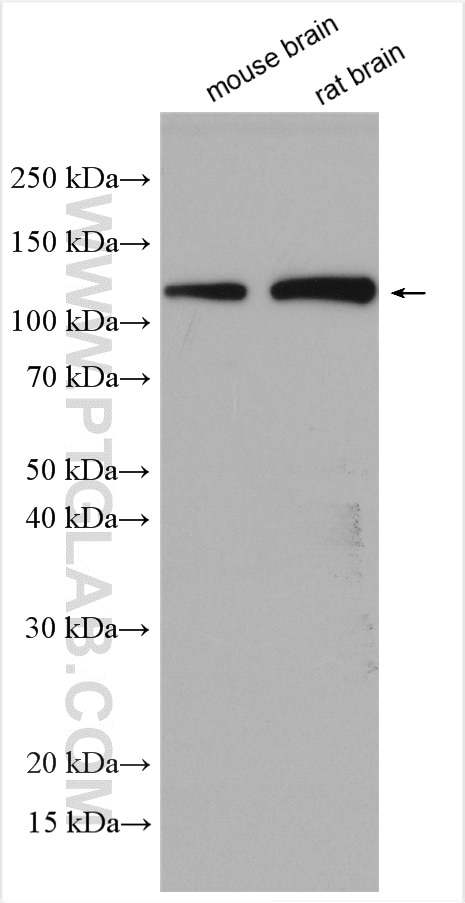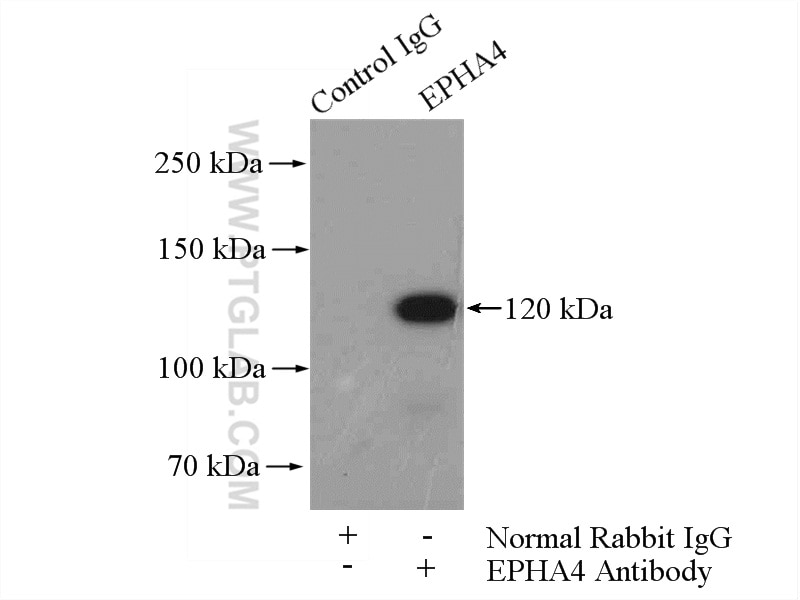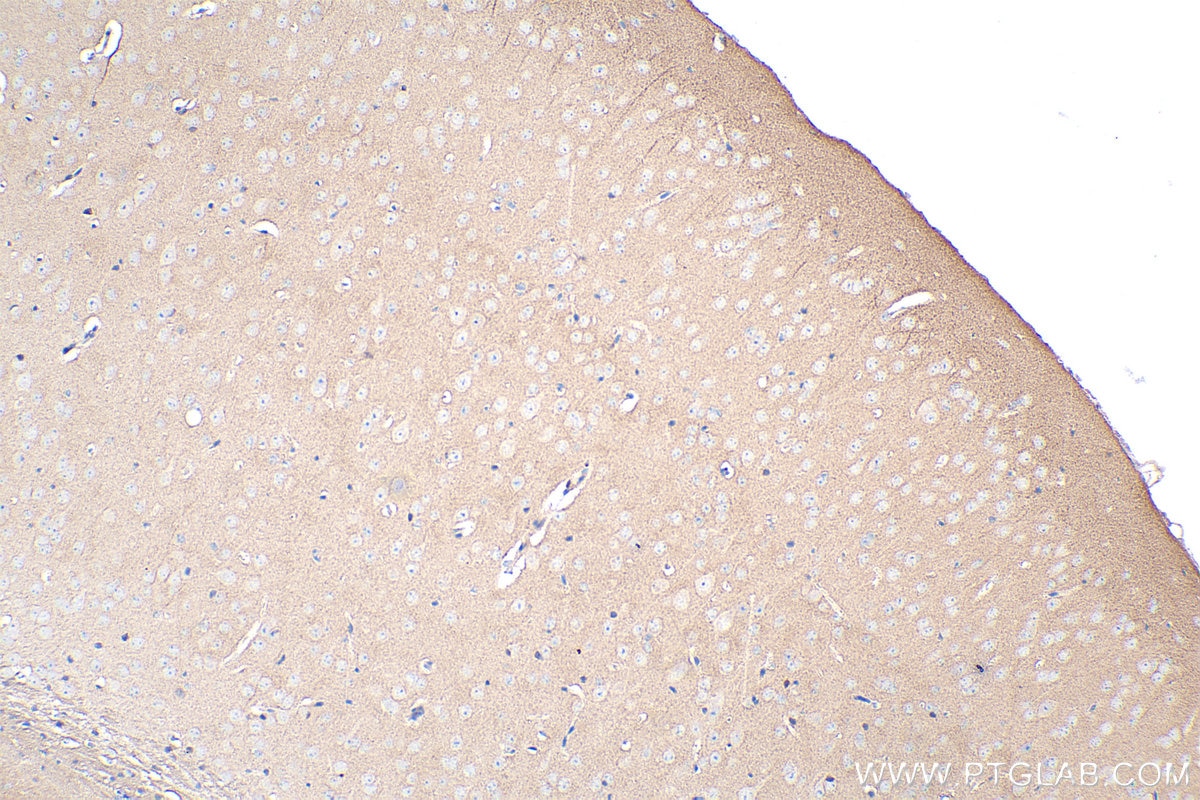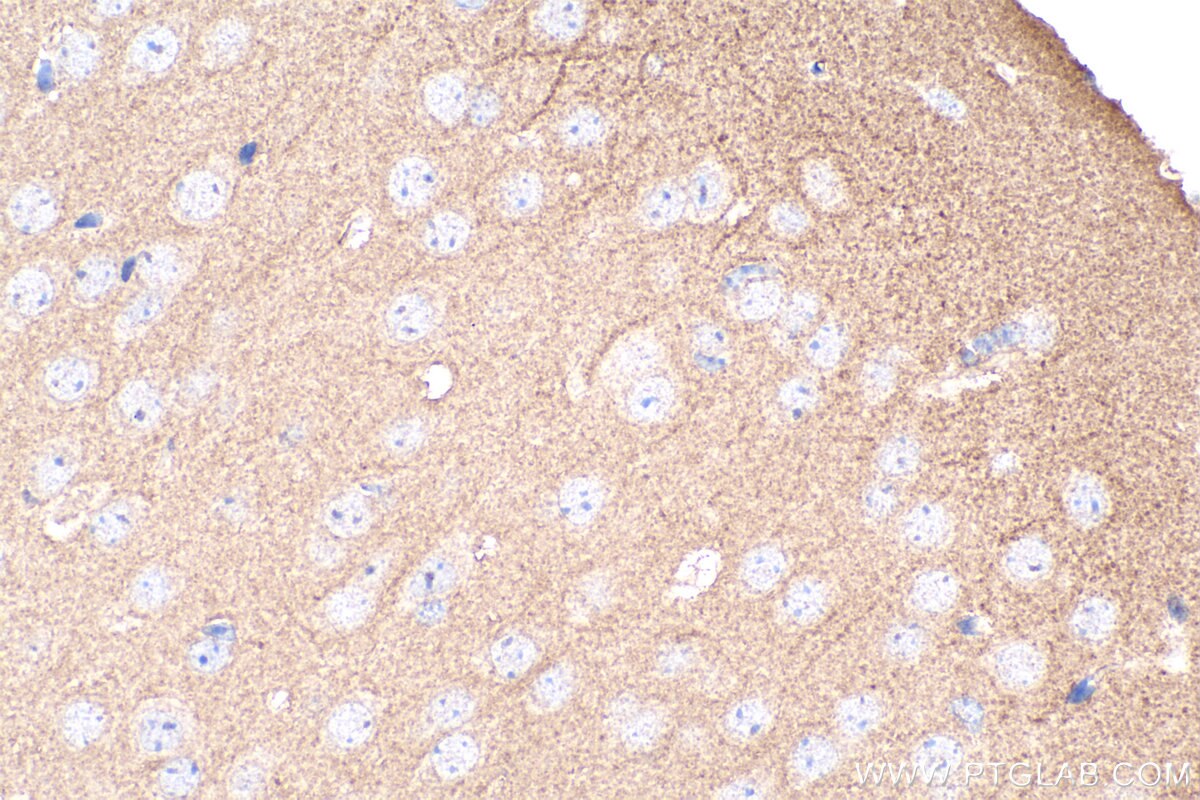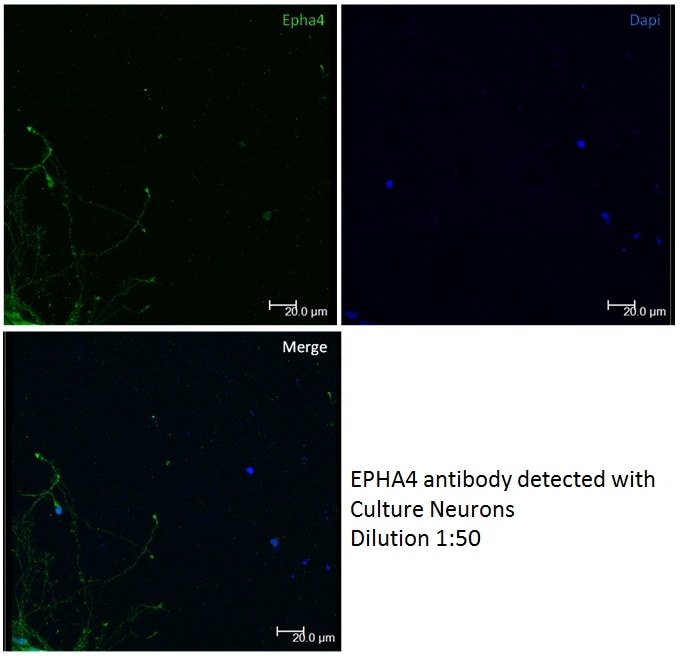Validation Data Gallery
Tested Applications
| Positive WB detected in | mouse brain tissue, rat brain tissue |
| Positive IP detected in | mouse brain tissue |
| Positive IHC detected in | mouse brain tissue Note: suggested antigen retrieval with TE buffer pH 9.0; (*) Alternatively, antigen retrieval may be performed with citrate buffer pH 6.0 |
| Positive IF/ICC detected in | Neuron cells |
Recommended dilution
| Application | Dilution |
|---|---|
| Western Blot (WB) | WB : 1:500-1:2000 |
| Immunoprecipitation (IP) | IP : 0.5-4.0 ug for 1.0-3.0 mg of total protein lysate |
| Immunohistochemistry (IHC) | IHC : 1:1000-1:4000 |
| Immunofluorescence (IF)/ICC | IF/ICC : 1:50-1:500 |
| It is recommended that this reagent should be titrated in each testing system to obtain optimal results. | |
| Sample-dependent, Check data in validation data gallery. | |
Published Applications
| KD/KO | See 1 publications below |
| WB | See 4 publications below |
| IHC | See 2 publications below |
| IF | See 2 publications below |
| FC | See 2 publications below |
Product Information
21875-1-AP targets EphA4 in WB, IHC, IF/ICC, IP, ELISA, Cell treatment applications and shows reactivity with human, mouse, rat samples.
| Tested Reactivity | human, mouse, rat |
| Cited Reactivity | human, mouse, rat |
| Host / Isotype | Rabbit / IgG |
| Class | Polyclonal |
| Type | Antibody |
| Immunogen | EphA4 fusion protein Ag16233 相同性解析による交差性が予測される生物種 |
| Full Name | EPH receptor A4 |
| Calculated molecular weight | 986 aa, 110 kDa |
| Observed molecular weight | 120 kDa |
| GenBank accession number | BC026327 |
| Gene Symbol | EPHA4 |
| Gene ID (NCBI) | 2043 |
| RRID | AB_2878936 |
| Conjugate | Unconjugated |
| Form | Liquid |
| Purification Method | Antigen affinity purification |
| UNIPROT ID | P54764 |
| Storage Buffer | PBS with 0.02% sodium azide and 50% glycerol , pH 7.3 |
| Storage Conditions | Store at -20°C. Stable for one year after shipment. Aliquoting is unnecessary for -20oC storage. |
Background Information
EphA4 is a member of the Eph receptor tyrosine kinase family and has important functions in the developing and adult nervous system (PMID: 14697664). The Eph receptors comprise a large family of closely related transmembrane tyrosine kinases that actively signal when bound to their ephrin ligands. The Eph receptors are characterized by an extracellular region with a unique cysteine-rich motif extending over its amino-terminal half, followed by two fibronectin type III motifs (PMID: 9530499). They are divided into two sub-groups (EphA and EphB) based on the similarity of their extracellular domain sequences and their affinities for binding ephrin-A and ephrin-B ligands (PMID: 11114742). EphA4 is involved in commissure formation within the forebrain, axonal guidance in the corticospinal tract, regulation of the central pattern generator that provides normal locomotor function and axonal regeneration following spinal cord injury (PMID: 30061574). EphA4 has been implicated as a disease modifier of amyotrophic lateral sclerosis (ALS) (PMID: 22922411).
Protocols
| Product Specific Protocols | |
|---|---|
| WB protocol for EphA4 antibody 21875-1-AP | Download protocol |
| IHC protocol for EphA4 antibody 21875-1-AP | Download protocol |
| IP protocol for EphA4 antibody 21875-1-AP | Download protocol |
| Standard Protocols | |
|---|---|
| Click here to view our Standard Protocols |
Publications
| Species | Application | Title |
|---|---|---|
Nat Commun EphB4 and ephrinB2 act in opposition in the head and neck tumor microenvironment. | ||
Proc Natl Acad Sci U S A Endothelial deletion of EPH receptor A4 alters single-cell profile and Tie2/Akap12 signaling to preserve blood-brain barrier integrity | ||
Biochem Biophys Res Commun Single-chain fragment antibody disrupting the EphA4 function as a therapeutic drug for gastric cancer | ||
Brain Res Bull Electroacupuncture ameliorates chronic unpredictable mild stress-induced depression-like behavior and cognitive impairment through suppressing oxidative stress and neuroinflammation in rats | ||
bioRxiv Identification of new ciliary signaling pathways in the brain and insights into neurological disorders | ||
JCI Insight Monocyte pro-inflammatory phenotypic control by Ephrin type-A receptor 4 mediates neural tissue damage. |
